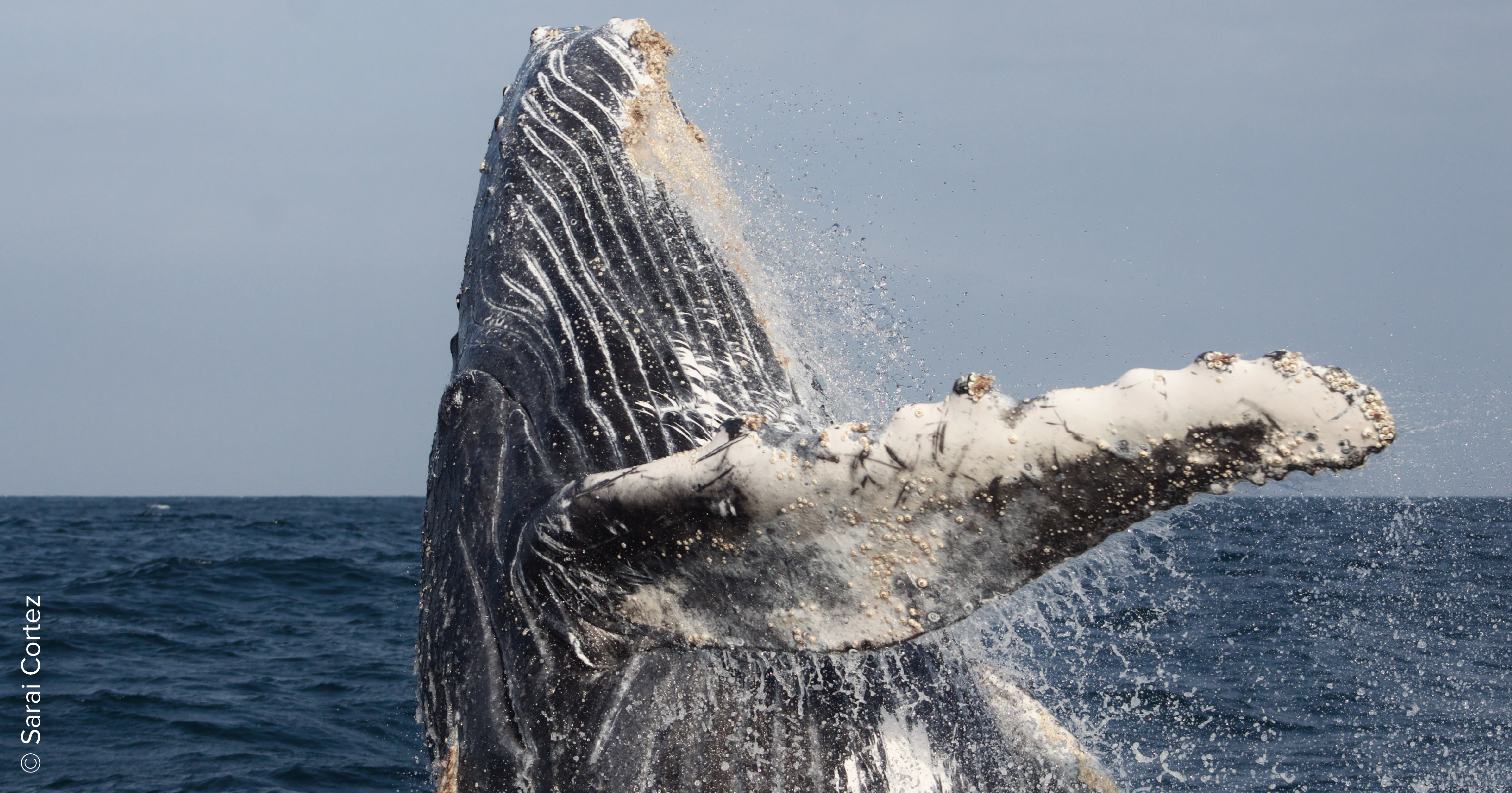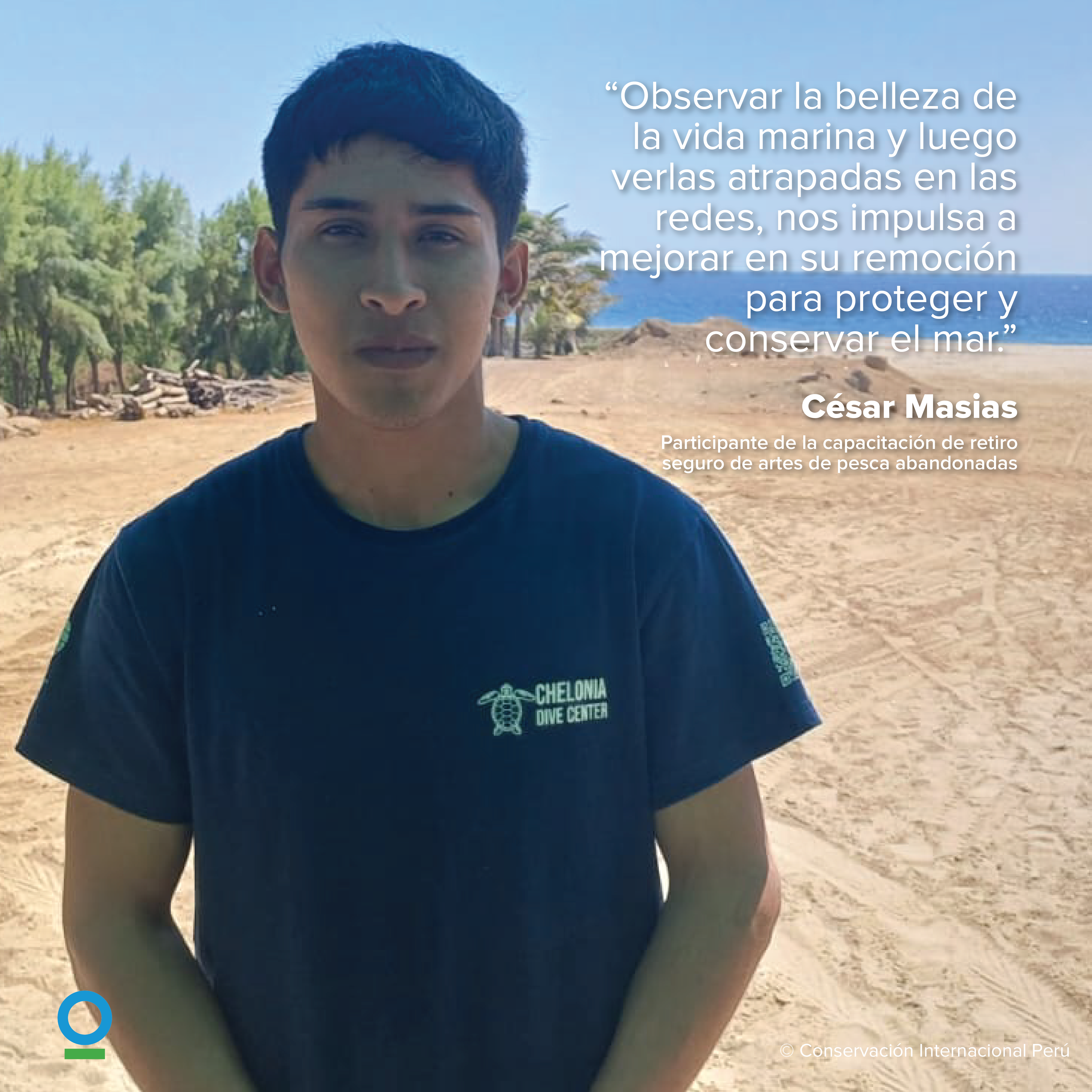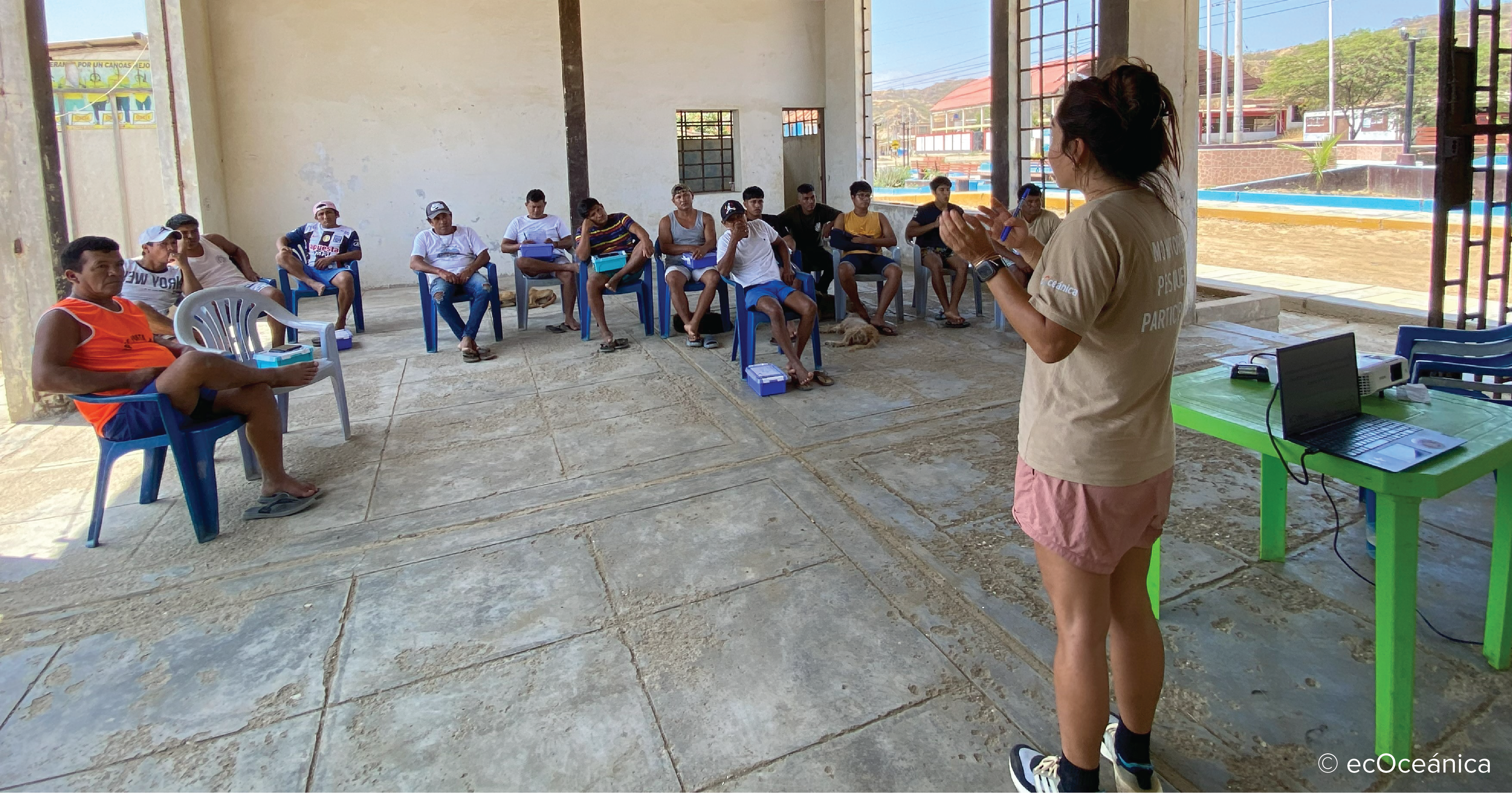As part of the effort to improve community coastal fisheries and promote sustainable resource management in the areas of Cancas and Punta Mero, in Tumbes, a series of trainings and studies have been carried out, with the aim of strengthening the knowledge of artisanal fishermen and the community about the fishery catch and resources, as well as opportunities to improve their quality of life, as a means to make more informed management decisions. These actions aim to support the management of the Mar Tropical de Grau National Reserve, an area of high biodiversity that requires effective conservation measures.

Ghost nets removal
One of the most outstanding achievements has been the development of a ghost fishing gear removal course, taught by a specialist from Conservation International in collaboration with Chelonia Dive Center. Ten divers were certified as PADI Ghost Fishing Gear Removal Specialty Divers, an important initiative considering that they are considered the most lethal form of marine plastic that captures wildlife in a non-selective manner, entangling marine species ranging from birds, turtles, dolphins, sharks and whales. In addition, they damage key marine habitats such as coral reefs and mangroves, also responsible for the loss of commercially valuable fish stocks, affecting the income of local fishing communities.

Boat maintenance
In addition, to provide greater guarantees for their operations, outboard engine maintenance training was provided to local fishermen, in collaboration with the Artisanal Fishing Development Fund (FONDEPES) and ecOceánica. Over five days, 14 artisanal fishermen participated in this course, which responded to a need identified by the fishermen themselves, who depend on well-maintained engines to carry out their daily activities. The technical training will improve the operational efficiency of their boats, which in turn will have a positive impact on the local economy.

Monitoring
They also participated in Participatory Fisheries Environmental Monitoring activities, in partnership with ecOceánica. 22 fishermen were trained in recording their catch and measuring sea temperature over a period of three months. This process allowed the fishermen to deepen their knowledge about the composition of their catches and the fishing gear they use, identifying up to 47 different species, demonstrating the biological richness of their fishing area.

But women are not left behind. After having participated in fisheries monitoring activities last year, 29 of them took part in a course on Processing and Marketing of Fishery Resources. This training aims to expand women's opportunities in local economic activity, providing them with tools to integrate into the fisheries value chain.

Science for conservation
On the other hand, a study is being carried out to analyze alternative fishing gear, focusing on reducing the interactions between the curtain nets used by fishermen in the area, and protected marine species such as whale sharks and humpback whales. This research aims not only to conserve marine biodiversity, but also to improve the quality of life of artisanal fishermen by reducing the economic losses caused by these interactions.
These activities are an important step towards the sustainability of local fisheries, with a view to protecting marine biodiversity and strengthening the economy of coastal communities.